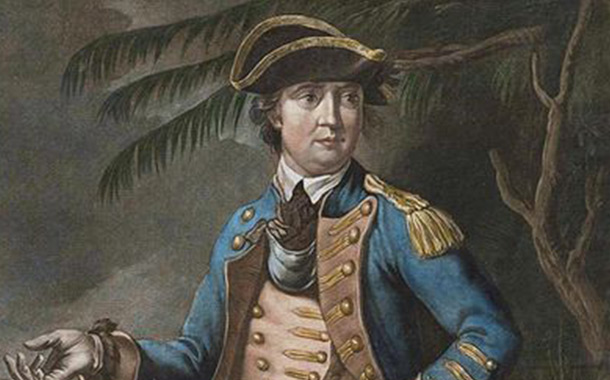<![CDATA[On the 25th September 1780, American General Benedict Arnold officially joined the British forces in the American Revolutionary War. His name has since become associated with treason and betrayal in American culture, overshadowing the key part he played in some of the most important US victories in the war. Arnold was born on January 14th 1741, in Norwich, Connecticut. He was the second of six children born to Hannah Waterman King and Benedict Arnold Senior. Arnold's great-grandfather was one of the first governor's of the Rhode Island Colony. The family was reasonably respected and affluent. Arnold Sr. was a successful business man, allowing the family to move in the upper echelons of Norwich Society. In the early 1750s, two of Arnold's siblings died, triggering a decline in the family's fortunes. His father spiralled into alcoholism, impoverishing the family and preventing Arnold from receiving a private education. He instead took up an apprenticeship in the apothecary business of his mother's cousins. In the 1760s Arnold established his own pharmacy business. He proved to be a very astute businessman, establishing a lucrative trade route through the West Indies. His business interests were adversely affected by the Stamp Act of 1765. The tax required any printed materials in the American Colonies to be produced on stamped paper produced in London. The official justification for the tax was to pay for the British troops stationed in North America to supposedly protect the colonies from foreign attack. Americans disputed the need for these troops on their soil, and believed the tax was just being used as patronage to British officers. Arnold joined the protests against the tax. Like many American businessmen, he carried on trading as if the tax didn't exist, essentially becoming a smuggler. Arnold also witnessed the Boston Massacre, where British troops killed six civilians in the American city. The event outraged Arnold, and further pushed him towards his role in the American Revolutionary Army. Arnold's involvement in the fighting started immediately. He was elected to Captain of the Connecticut Militia in 1775, and took part in the siege of Boston. His first great success in battle came alongside Ethan Allen, with the capture of Fort Ticonderoga in New York. He achieved another notable success in 1776, when his troops hindered a British invasion of New York at the Battle of Lake Chaplain. The Battle of Saratoga saw Arnold perform his most important role for the Americans in the Revolutionary War, but also what turned out to be his last major action for the side. He played a pivotal role in the victories that proved so crucial in turning the war in America's favour. After recovering from injuries sustained in the battle, he was awarded military command of Philadelphia. In Philadelphia he became embroiled in political and legal disputes with the hierarchy of the American army, the fledgling American Congress, and the local government. By December 1778 he had received a court-martial for improper conduct. Perhaps because of these disputes, Arnold entered secret negotiations with the British in 1779. He agreed to hand over the US post at West Point in exchange for money and a commission in the British Army. The plot was discovered when British Major John Andre was captured by the American forces. Andre was carrying plans Arnold had given him for West Point, and disclosed the secret agreement. Arnold escaped behind British lines, and went on to serve in the Continental Army. He recruited an American Legion of loyalist men to fight alongside the British. He led several notable campaigns for the British in 1781, notoriously capturing Richmond and leading a rampage through Virginia. After the war's end, Arnold moved to England, and resumed work as a trader. He had played a key role in many of the USA's successes in the Revolutionary War, but for Americans his name will forever be synonymous with traitor.]]>
Benedict Arnold – Unrecognised Hero to Famous Traitor
